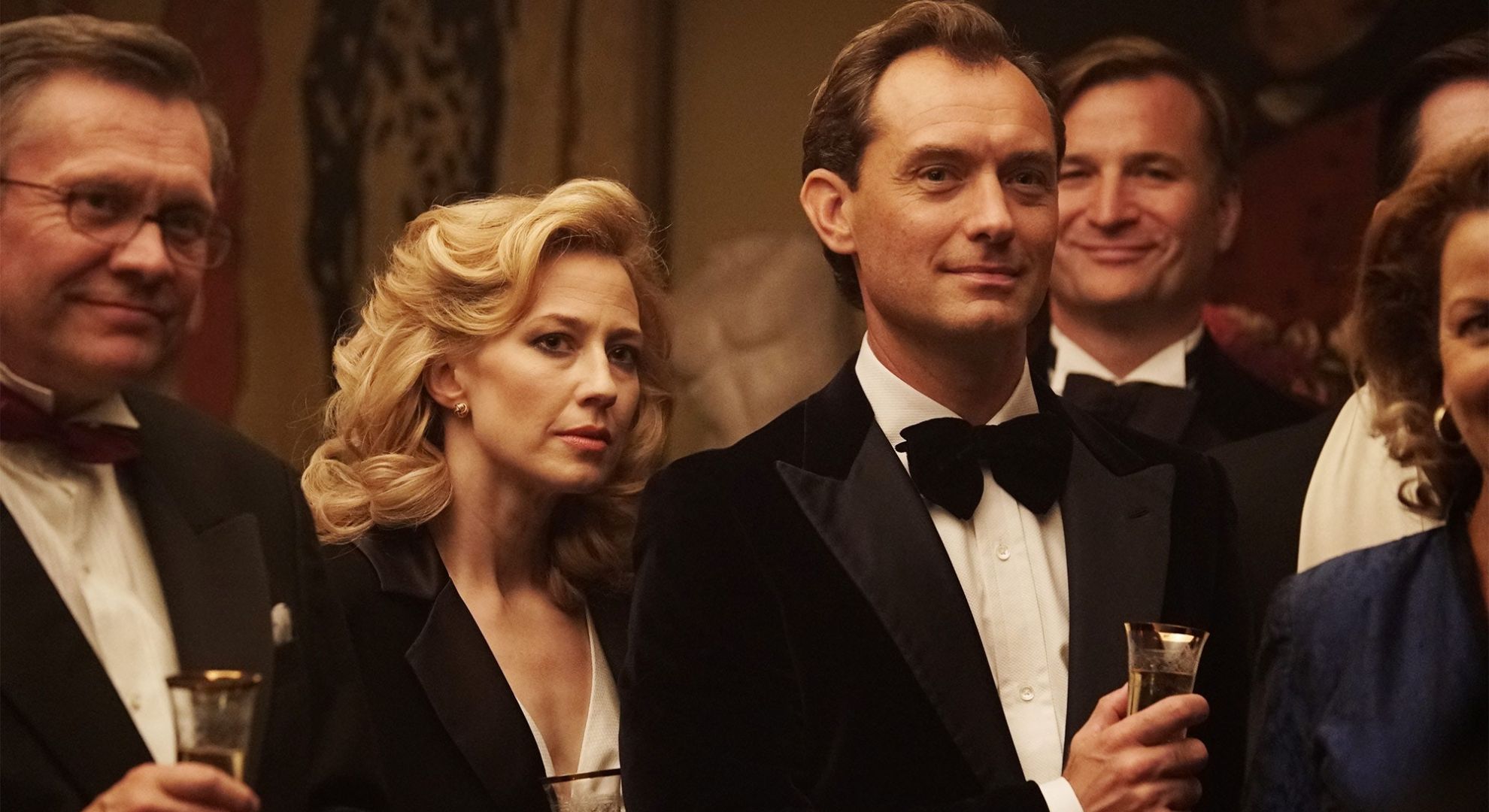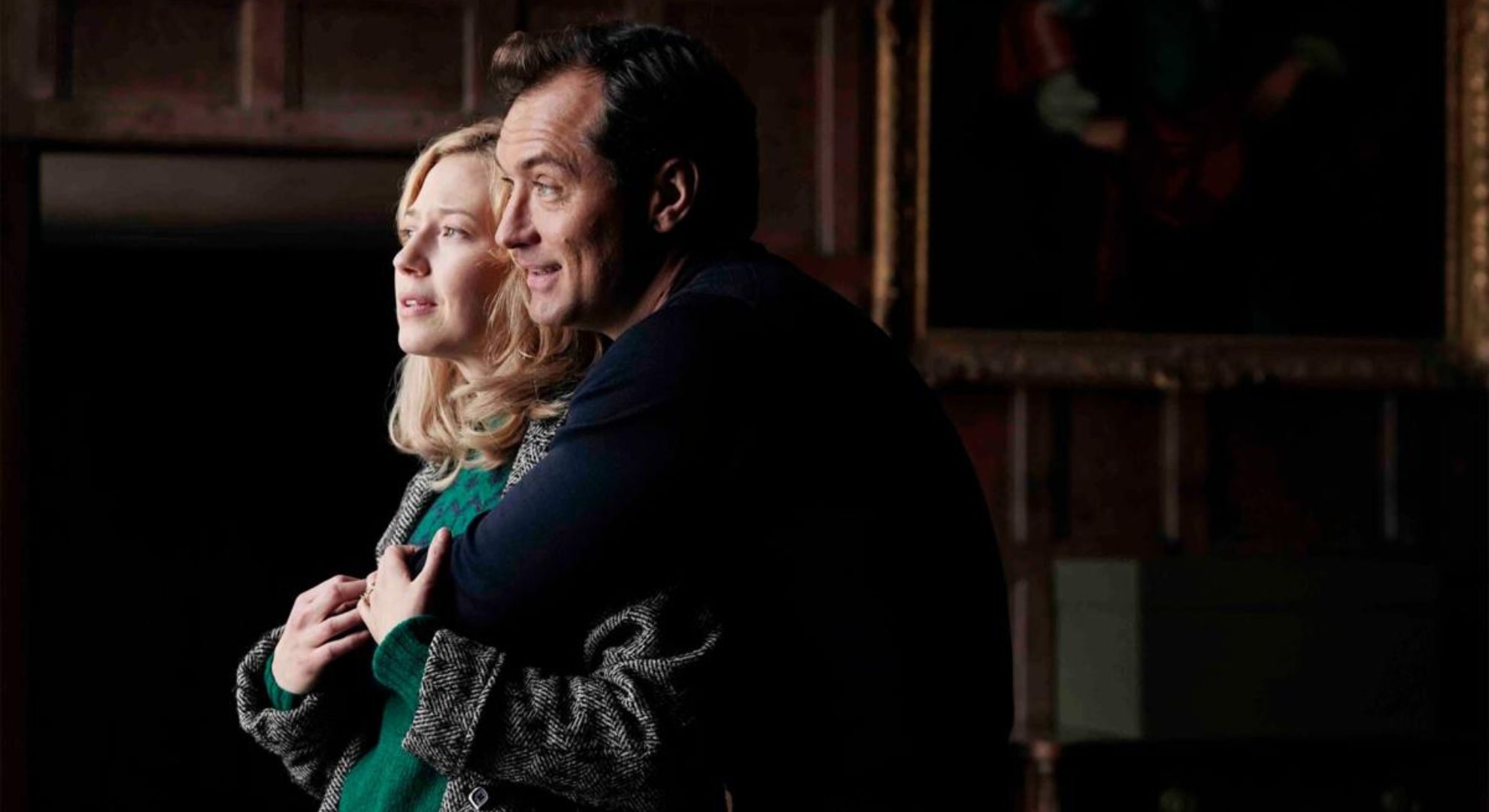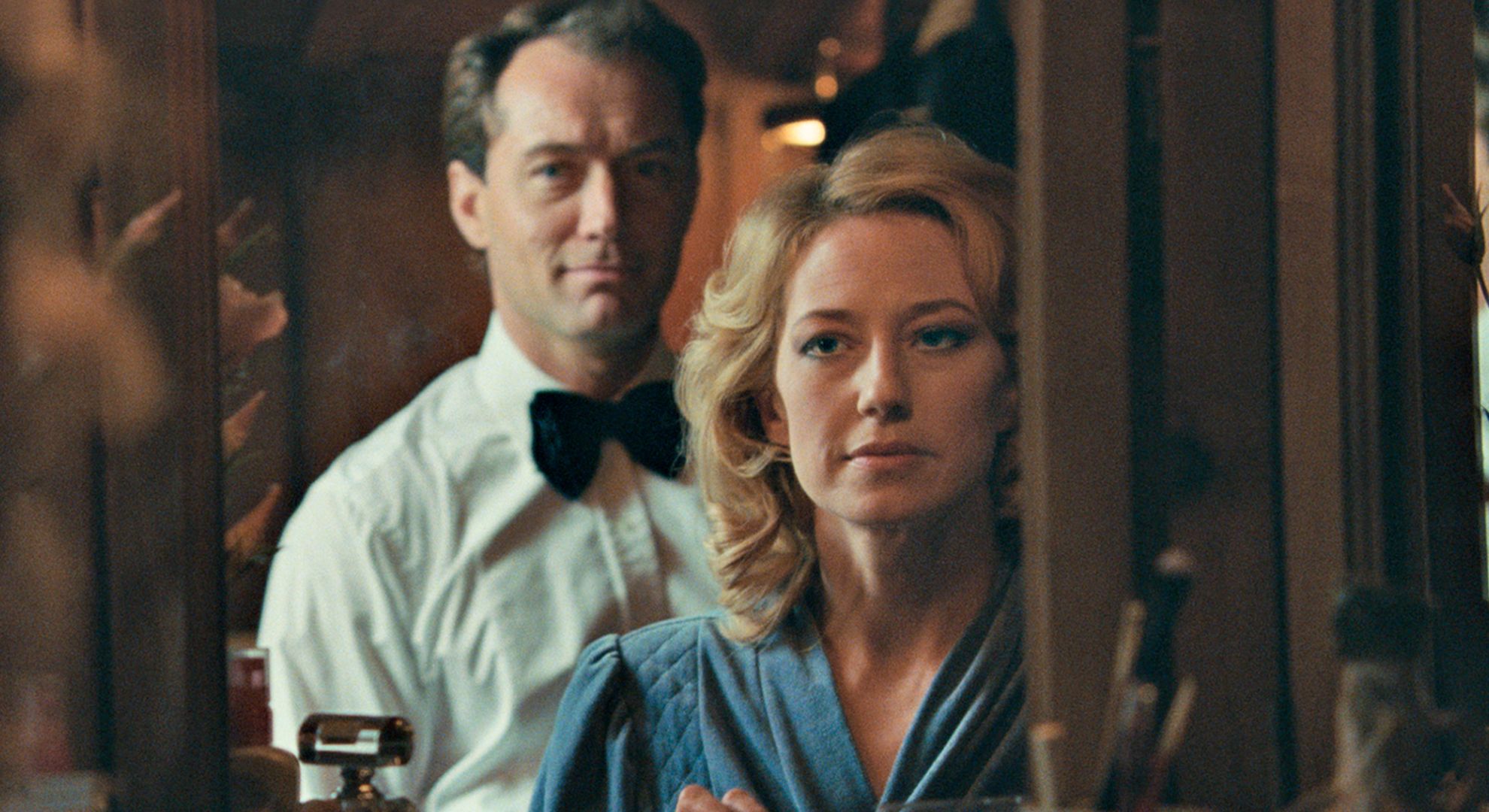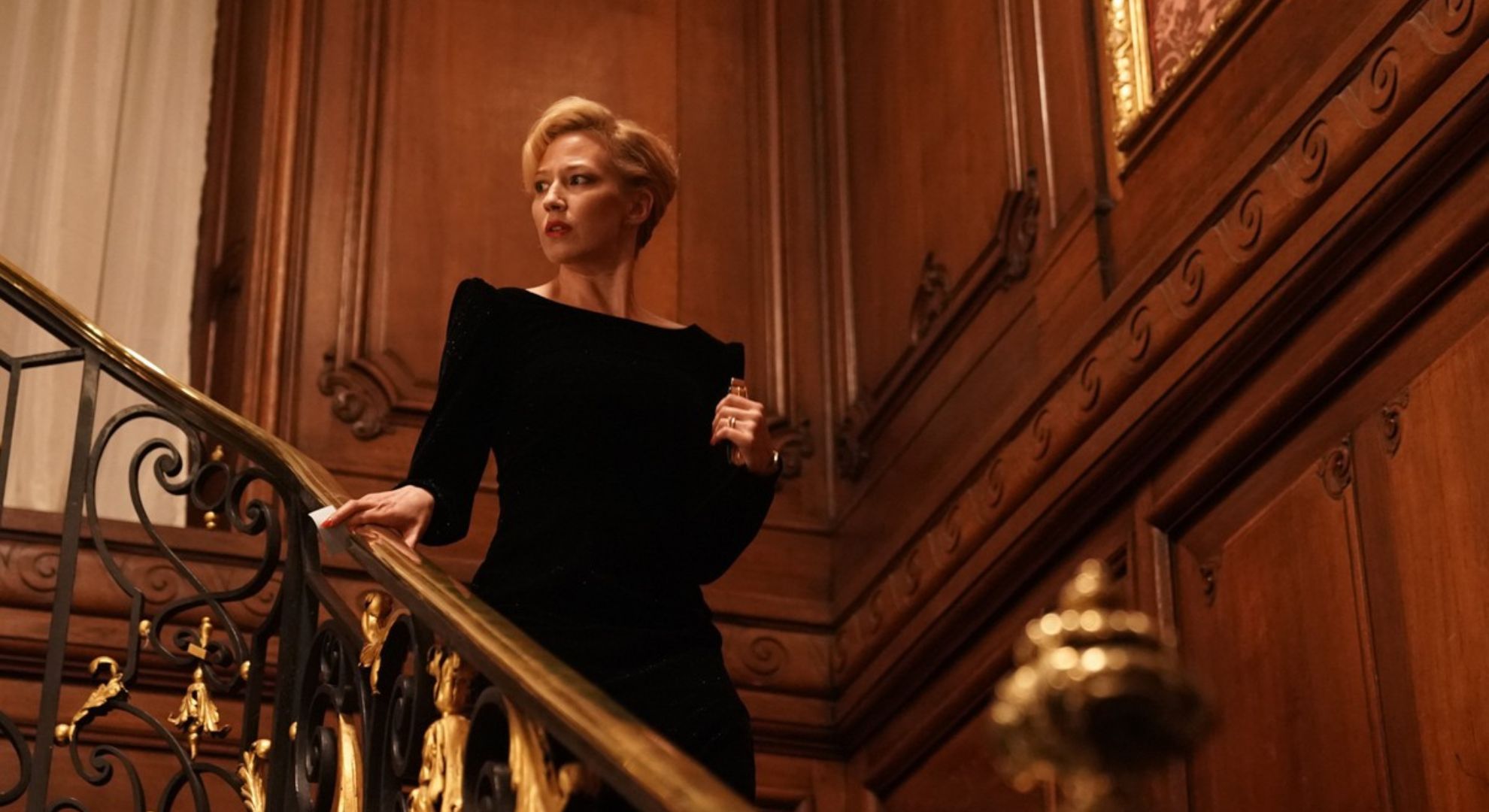The Nest: Jude Law and Carrie Coon on their exquisite thorny drama
The Nest is Sean Durkin’s first film since Martha Marcy May Marlene and it’s well worth the decade-long wait. The director and stars Jude Law and Carrie Coon tell Total Film about a family’s fracturing in the shadow of the Overlook Hotel...

"The Shining is the single most important viewing of my life," says Sean Durkin, the director of cult thriller Martha Marcy May Marlene and the equally disturbing Channel 4 miniseries about a town shooting, Southcliffe. We’re discussing Stanley Kubrick’s masterpiece because Durkin’s long-awaited sophomore movie, The Nest – a riveting drama about a family moving from New York to a rambling mansion in Surrey, England – is haunted by the ghosts of the Overlook Hotel.
"I was 12," continues Durkin. "I’d just moved to New York, and I went to a friend’s house. His older brother had a VHS of The Shining. We watched it, and it was the first time I knew I wanted to make films – just subconsciously understanding direction and atmosphere. I felt like I had lived in some pretty tense atmospheres, and I think it was my first time seeing a film that expressed tense atmosphere, and an uncanny..." He smiles sheepishly. "I felt quite connected to the whole thing."
Durkin was born in Canada, spent his childhood in Surrey, and moved to New York when he was 11. When he returned to the UK to shoot Southcliffe in Kent, he was surprised by just how much it felt like home – and he wanted to make a movie to explore that feeling. It took five years to write and develop, but The Nest is worth the wait, emerging as a subtle, slow-burn, painstakingly detailed examination of a marriage and a family coming apart at the seams.
Set in 1986, the time of the 'Big Bang', when the deregulation of financial markets made London the money capital of the world, The Nest sees commodities broker Rory (Jude Law) uproot his wife, Allison (Carrie Coon), and two children, Sam (Oona Roche) and Ben (Charlie Shotwell), so that he might pursue an opportunity in London. Rory is obsessed with status, and immediately secures a ramshackle mansion in Surrey that he can’t afford, and sets about investing in a second pad in Mayfair. Rory wants what’s best for his family, but his incessant drive for more puts them in danger. OK, so he’s not exactly Jack Torrance chasing after his loved ones with an axe, but his toxicity devastates nonetheless.

"In truth, I didn’t really like Rory," says Jude Law over Zoom. "I really liked the director, and I really liked the story, and I liked the dynamic between the husband and the wife and the children. But Rory... My worry was, on the page, he’s obnoxious. And then I recognized that actually, it was a challenge, to try and seduce..." He trails off, and nods when it’s suggested to him that he’s at his best when he’s allowed to layer his nuclear charm over a core of vulnerability and darkness. "The family are not idiots, especially the wife. Allison is a formidable character. She would have been foolish to stay with a guy who was an idiot, who was mean. So the challenge was to bring a gloss to this guy, and a panache that made you understand why they were together, and why she would suffer him."
"Allison’s one of the most complicated women I’ve ever read,” says Carrie Coon, who turned heads in The Leftovers and David Fincher’s Gone Girl, and now delivers a performance to establish herself as one of the best actors on the planet. And that’s no hyperbole. “Sean’s writing is so specific, and the characters are so finely wrought. And it was just a marriage that looked familiar to me. It felt like the most real examination of marriage I had read. It was a nuanced look at the subtle compromises we make, whether spoken or unspoken. And what happens when those unspoken agreements have to be renegotiated."
"I think it’s important to point out that, at his heart, Rory’s a good man," stresses Law. "You know, it’s that strange and rather sad journey that some people go on – they think to save their family, they have to go further away from their family. For Rory to keep feeding the dream, it’s like he’s literally separating himself from them."
Sign up for the Total Film Newsletter
Bringing all the latest movie news, features, and reviews to your inbox
Marriage Story

The Nest is the kind of thorny adult drama that was a staple of ’70s cinema but now gravitates to TV. Witnessing the minutiae of a marriage examined with such painstakingly patience in a feature rather than a series is rare these days, and that’s just one of Durkin’s concerns. Also under the microscope is how the Big Bang of 1986 fed into the financial crisis of 2008 and how we are all still dealing with the results, and how Allison, hitherto content to let Rory be the traditional man of the house, must wrest power to save the family. Again, this theme of female empowerment chimes perfectly with the current wave of feminism.
"The way he layered all that into a domestic drama was nothing short of brilliant," says Law. "In a way, it’s like saying, ‘Let’s go back to when all this being ‘now’ started. Let’s look at the seed. Let’s look at the root of it.’”
Coon shares his enthusiasm. "At the beginning, we see a woman who’s very grounded, and she’s married to a dreamer," she says. “She’s a very good teacher-focused, authoritative, kind. She’s doing something she really loves to do. And then when they move, all of that is just swept out from under her. She’s put into this society which is arguably more stratified and more focused on status than a traditional American..." She sighs. "Suddenly she’s forced into this more traditional role of a wife – not the breadwinner, not 'co', not 'partner'. And that was not the contract she made with her husband."
"I’m fascinated by characters with duality," says Durkin of the complexity on show. Both Rory and Allison have their own values, but where do those values meet, and what happens when values evolve? In fact, are those values even their own to begin with? "It’s like: where has that come from?" Durkin says. "Is that dream even Rory’s? Is it just a response to his mother, to show her he’s not in the place he came from?"
Status, naturally, plays a major part – for many people, it’s not who they are but who they’re perceived to be that matters most. It must be something that Law and Coon know all about, being actors in Hollywood.
"Look, I know the film industry very well, and you’re right to say that there are similarities to the way people operate,” nods Law. "But I think it’s probably the same whether you’re selling property or selling cars or selling shampoo. The reason this story is so effective is that a lot of the themes are familiar to most people, whether it’s the themes of how a family operate, or the themes of how we operate as individuals in the workplace, and what games we take part in."

Allison’s one of the most complicated women I’ve ever read. Sean’s writing is so specific, and the characters are so finely wrought. And it was just a marriage that looked familiar to me.
Carrie Coon
Coon all but rolls up her sleeves for this one. "The reality is that I’m at the top of the B-list," she starts with a hearty laugh, "and if I’m really lucky, a great filmmaker like Sean Durkin will see my work and want to work with me. And maybe, someday, one of those parts will break through, and I’ll be at the bottom of the A-list" – another big laugh – "and maybe I’ll have an opportunity to work on the 10 film roles that come out for women in major motion pictures a year."
She’s not obsessed with how many people follow her on Instagram, then? "I think that’s really sad. I do put a lot of stock into the fact I come from the Midwest, and my people are working-class people. They are sort of that quintessential Midwestern attitude which you see in Fargo – stoicism, hard work, you don’t brag, you don’t tell anyone, you handle your problems quietly. I’m very close to my family. And I married a man from Oklahoma. And because we’re both in the industry, we know what the pitfalls are. I’m just grateful I have a partner who has had some success, and knows how actually empty it is."
Coon’s husband is actor, screenwriter, and playwright Tracy Letts, recipient of two Tony awards and the Pulitzer Prize for Drama. He’s seen The Nest and liked it a great deal. And no, it didn’t make for awkward couples viewing despite chiselling deep into the cracks of a marriage.
"Probably because my husband and I both had complicated relationship histories before we met, and because we’re both in an industry where we meet very attractive, charismatic people all the time, we have these conversations really regularly," Coon says, matter of fact. "We’re always talking about: 'What are these written and unwritten contracts of our marriage?'"
Heeeere's Rory
But let’s finish as we began, by shining a light on The Nest’s similarities with Kubrick’s iconic horror opus. The homage, like everything else in Durkin’s film, is subtle, but the hints of genre bring a lot to the drama, adding yet more tension to a movie full of it.
"I’m generally interested in playing with genre in non-genre movies, because I think fear is this very beautiful and intense human feeling, and film is the only art form that really captures it," says Durkin. "I’m making a drama, and the drama happens to be set in a place that’s terrifying. You know, it’s a 750-year-old house that is scarier in real life than it is in the movie. You step into these places, and they’re alive. They make noises all day. The doors open in the morning, and then not in the afternoon. The house breathes. The atmosphere is thick. You feel that much history.
"So that’s one part of it. And then the other part is just... I always try to follow the psychological state of the character. For Martha... I researched the experience of women who escape from a cult, and the natural state of that is a psychological thriller – so I followed that. And here, you know, Allison and the kids’ journey of being uprooted and put in this place that is someone else’s dream... it isolates them and changes the family. And just being alone in that house at night, and not knowing if and when Rory is going to walk through the door – it puts you on edge. So it felt like a haunting." Specters and a splintering family? Be frayed. Be very frayed.
The Nest is in cinemas now! This article originally appeared in Total Film magazine (the issue featuring Halloween Kills on the cover). For more exclusive interviews and features, be sure to subscribe through this link.
Jamie Graham is the Editor-at-Large of Total Film magazine. You'll likely find them around these parts reviewing the biggest films on the planet and speaking to some of the biggest stars in the business – that's just what Jamie does. Jamie has also written for outlets like SFX and the Sunday Times Culture, and appeared on podcasts exploring the wondrous worlds of occult and horror.


